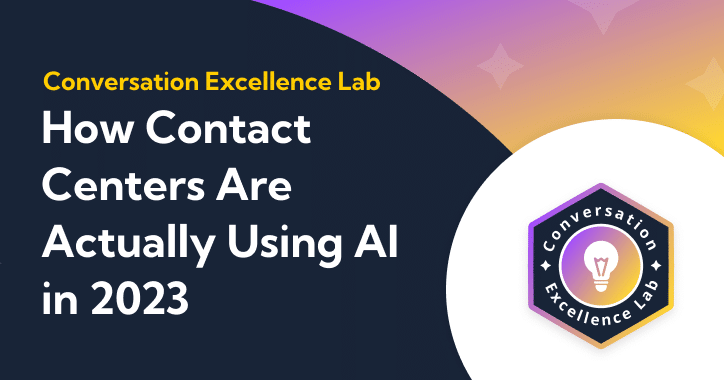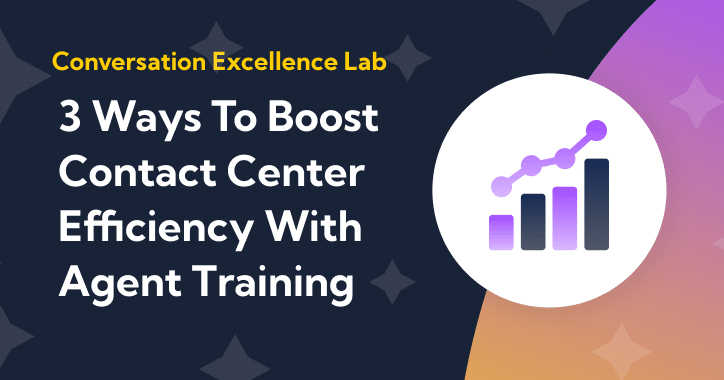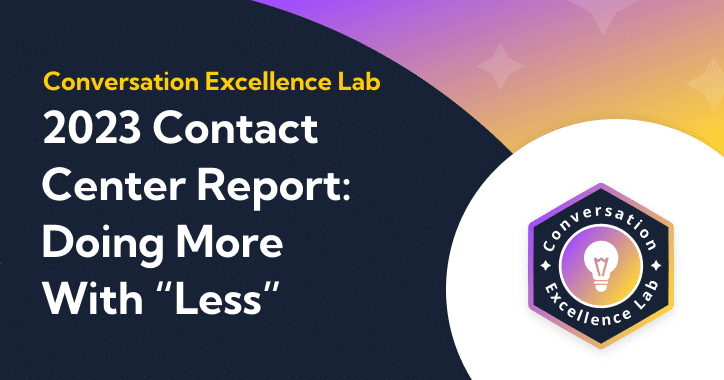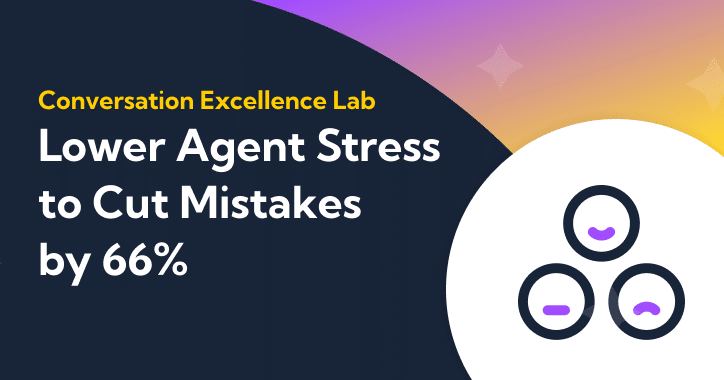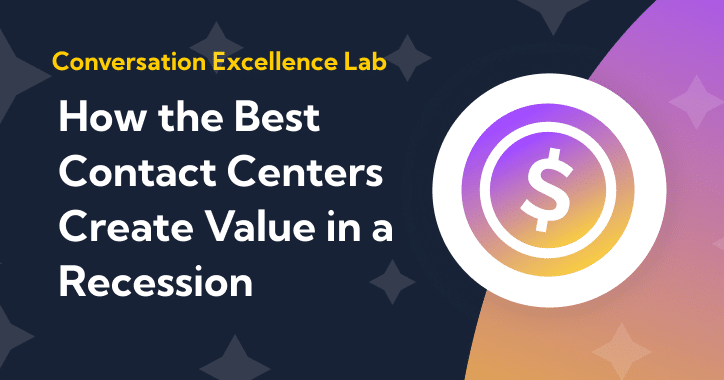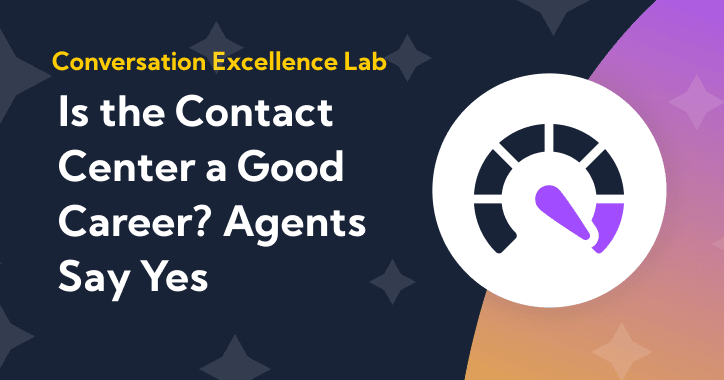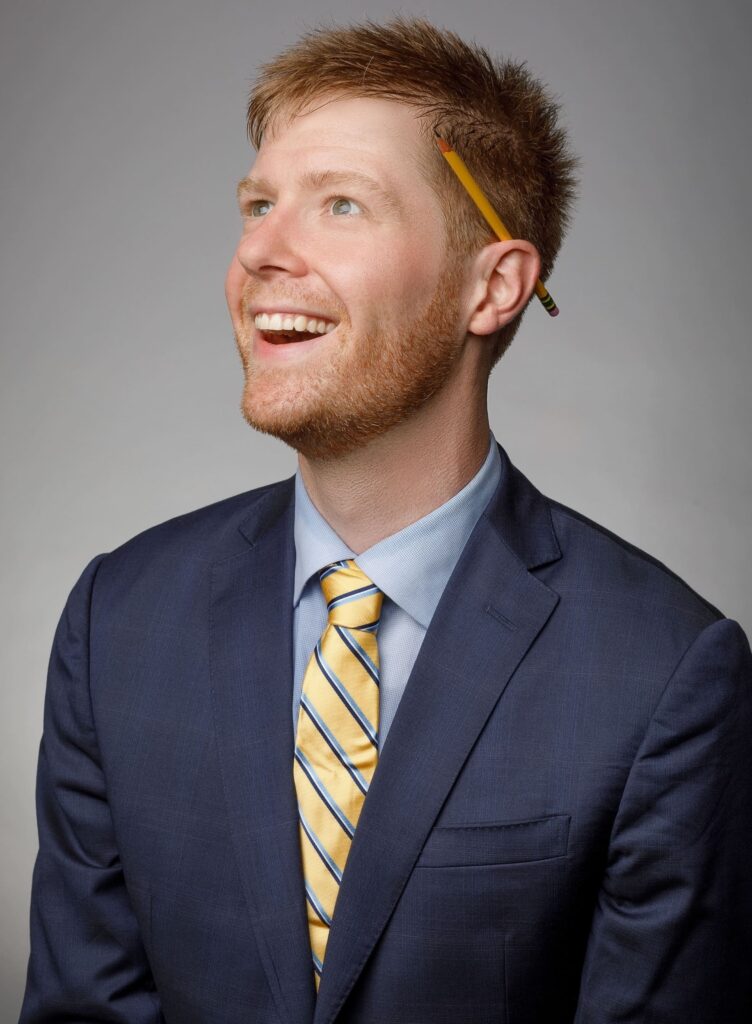
Behavioral research scientist Mike Yeomans thinks a lot about how we talk with each other. But more than just small talk, Mike asks questions about how we choose to get along, how we share information, and how we build relationships.
We sat down with Mike to talk about how his work relates to building trust between customers and contact center agents, how to overcome distrust in conversations, and the power of asking good questions.
This piece is part of a series of Q&A sessions highlighting our research partners. Subscribe to future Conversation Excellence Lab reports below:
Q: Was there ever a time when you had to work in sales or customer service?
A: There were a couple summers where I was a window washer. We used to do some door-to-door sales and try to recruit people for quotes. It was so hard and I didn’t know what I was doing. Trudging around through people’s houses with a bucket of dirty rags and water led to surprisingly complicated conversations. I don’t want to say we were “bothering” people, but we were trying to get them to do something for us that they weren’t initially willing to do — buy our services.
Q: That's fascinating. I know you study how to handle opposing viewpoints in conversations. Do you think sales calls can be an example of that, two people with different agendas?
A: There are some differences between sales calls and opposing viewpoints in general, but trust is always an important factor in these conversations. We have to trust people to get along with each other. It’s the foundation for a long-term collaboration, even if you’re not getting what you want right now. Maybe that means managing a conflict but not necessarily resolving it. But you can build trust despite a disagreement.
During a customer service call, you’re thinking a lot about that long-term relationship. Even if you can’t fix their issue right away, you want to continue building that trust between customers and your brand.
"Even if you can’t fix their issue right away, you want to continue building that trust between customers and your brand."
In these conversations, there are a lot of power differentials that are interesting. In conflict situations that we’ve studied, we look at people who are of equal status. But that’s not the dynamic of an agent and a customer. As a customer, you feel both powerful and powerless. You can feel powerful by making an agent do something for you, while still feeling powerless in the face of a big company’s processes.
Q: How do you get over the distrust a potential customer may have of a sales call or during a customer service call?
A: I think there’s value in topic preparation and planning conversations in advance. In corporate settings, we’ve found that agents are pretty smart about this. This is where scripts and templates can be helpful. I think in general, mistakes tend to happen with people not being prepared enough.
But I can imagine that if you go overboard with preparation, conversations will be too stiff and put people off. The nice thing about preparing for a conversation is that you don’t have to say everything you prepared. It’s nice to have those things handy in a moment’s notice.
We tend to find in social settings, people under-prepare. You learn a lot during a conversation and you should leave space in your preparation for adaptation because no two conversations are exactly the same.
Q: What’s the value of affirming language and follow-up questions when problem solving?
A: Follow-up questions play a broad role in a conversation. We often think about questions as serving an informational purpose. When Alison Wood Brooks and I wrote one of our first questions together, we were really thinking about the relational benefits of question-asking. What does asking questions tell people about us? It helps build a good impression, shows them we are interested, validates them, shows them we care and we’ve been listening.
"When we ask questions, there’s this implication that suggests that we are interested in what people are saying. When we violate that expectation, not only do we miss a chance for listening but we also signal our insincerity."
In turn, bad questions don’t demonstrate interest. They don’t validate what the conversation partner said, or don't show that you were listening. You are imposing a topic the other person might not care about, rather than searching for a topic that you can create rapport around early on.
For example, when you ask a question so that you yourself can answer it. What we consistently find is that it's worse to ask the leading question than to straight up say what you wanted to say.
When we ask questions, there’s this implication that suggests that we are interested in what people are saying. When we violate that expectation, not only do we miss a chance for listening but we also signal our insincerity.
Mike Yeomans is an Assistant Professor in Strategy and Organizational Behavior at Imperial College Business School. In his research, he uses natural language processing to study decision-making in conversation. His work shows how conversation technology can help us understand our conversational decisions, and how to make them better.
The Conversation Excellence Lab is Balto’s hub for academic-level research. The Lab creates thought-leading content with the support of research teams and in-house data. All reports are published online and available for free. Readers can get reports sent directly to their inbox by subscribing to the Conversation Excellence Lab’s newsletter.

